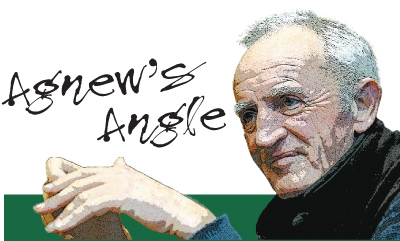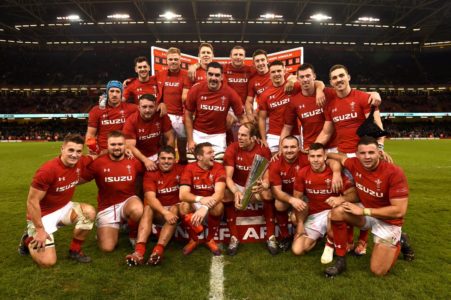
It’s a funny old world when Six Nations champions Wales have broken New Zealand’s 509-week status as the world’s top rugby nation and England, fifth in last year’s Six Nations, beat 2018 champions Ireland 57-15 at Twickenham.
That doesn’t make good reading for those of us who recall the Irish beat the All Blacks twice in their last three clashes, having never previously beaten them. But then the All Blacks looked creaky this winter when beating Argentina 20-16, drawing with South Africa 16-16 and losing to Australia 47-26 before avenging that defeat with an emphatic 36-0 triumph.
What made that latest win so satisfying was the impact shown by the five replacements with Nepo Laulala and Patrick Tuipolotu adding grunt to the forwards, Sonny Bill Williams straightening the backline and busy new wings George Bridge and Sevu Reece showing a hunger and brilliance that Rieko Ioane and Ben Smith had failed to produce.

In fairness to the latter pair, their forwards didn’t give them a platform to perform in earlier games and Smith had lost speed following a hamstring tear.
At a time when the All Blacks have so many candidates for the midfield positions, I am surprised most writers and commentators favour the SBW/Jack Jack Goodhue pairing.
While it was pleasing to see Williams perform well in the walloping of the Wallabies, injuries have plagued him since the 2016 Olympics. And while Goodhue has been solid, Anton Lienert-Brown’s ability to beat a man and pass in close quarters contact gives his wings more chances to score.
None of the midfielders, however, are as prolific a try-scorer as powerful Ngani Laumape whose passing game requires more polish.
But if you want to talk power, England can rejoice in the return to form of No 8 Billy Vunipolo and centre Manu Tuilagi who were devastating against Ireland.
With George Ford and Owen Farrell combining sweetly in the five-eighths, juggernaut Tuilagi, speedy fullback Elliot Daly and wings Johnny May and Joe Cokanasiga are getting quick ball to sharpen their attacking skills.
In Farrell, George and Daly they are also blessed with three outstanding goal-kickers.
Having failed to go beyond pool play in their own backyard at the last World Cup, England look much more dangerous this year.
Just as England have profited from expanding their game by trusting their backs, so too have South Africa who pose the first hurdle for the All Blacks to overcome in the first game of the World Cup in Japan next month.
Certainly the Boks won’t under-estimate anyone, having lost their pool opener to brave Japan in 2015. But they bounced back to just lose 20-18 to New Zealand in a nerve-tingling semi-final.
It is also worth recalling that having won two World Cup finals in 1991 and 1999, Australia were the last losing finalists, having lost to the All Blacks 34-17 in 2015.
Their form has since been patchy and sometimes poor. However they can still be dangerous as the All Blacks learned before avenging this year’s 47-26 humiliation.
Having also won two in 1995 and 2007, the Boks will also be eager to equal the All Blacks record of three in what looks likely to be the closest fought World Cup to date.
- Ivan Agnew is an award-winning sports writer








